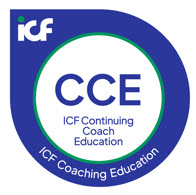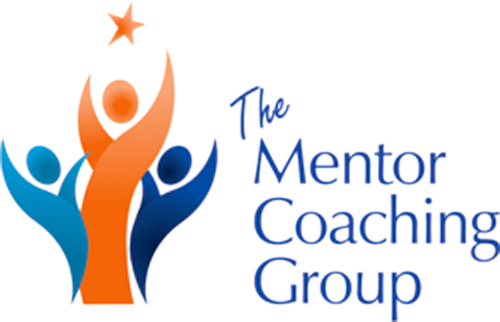From 2001 – 2005, I offered mentoring for coaches within the Coach U training program, which included what is now called Coaching Supervision as well as core competency development and business development. Due to coaching contract commitments, I stopped offering any mentoring from 2006. Then in 2011 and 2012 I had requests for Mentor Coaching for credential preparation due to my ICF Assessing experience.
In late 2012, I felt the timing was right, and created The Mentor Coaching Group with co-founder Karen Boskemper. I’m passionate about advancing the professionalism of coaching, and believe that a great way to do that is through core competency development. The core competencies cover any type of coaching focus, every type of coach training and all the core coaching skills.
My beginning point is the International Coaching Federation (ICF) definition of Mentor Coaching as related to core competency development: “For purposes of Credentialing, a mentor coach primarily supports a coach in achieving the levels of core competency and building skills in the Core Competencies.”
However, I consider my approach to be Mentoring Supervision, as developing Capacity of each Coach is a given. I’m also trained in supervision methods and cannot separate out mentoring mindset from supervision mindset. My extensive mentor coaching experience embraces deeper exploration of the core competencies of “Maintains Presence” and “Embodies a Coaching Mindset” – which are required to be a Professional Coach at ACC, PCC and especially MCC skill level.
For me, there is a natural exploration of a richer and broader development of the Coach I’m mentoring, using core competency development. For example, it’s rare that a coach passes the MCC credential exam without a deeper understanding of how their presence, biases and beliefs impact their coaching, and their client results.
Refer to my About page for extensive list of qualifications as a mentor coach.
Depth of experience. Since 2013, I’ve led 80 mentoring programs (as at April 2025) with over 750 coaches mentored. I’ve listened to and evaluated over 2000 coaching recordings as an ICF Assessor, and Mentor Coach.
I have a passion for advancing the professionalism of coaches, which I believe can be done through studying and integrating the ICF core competencies so you are coaching at a higher level of competency, at any skill level.
I voluntarily contribute time and expertise to the ICF Community of Assessors, especially for MCC and PCC Assessors.
Being an active ICF Assessor means I keep up-to-date with credentialing standards and changes.
I have collected, with explicit permission from some of my clients, an exclusive and extensive library of coaching recordings that have passed MCC, PCC and ACC skill level “performance evaluations” by ICF. This is such a gift; to hear coaches coaching and be able to compare to your coaching skills. This is a pay-it-forward gift from many of my clients, as they gained so much from hearing this library of bona fide coaching recordings (meaning they passed ICF MCC, PCC or ACC, not just me saying this is an MCC, PCC or ACC skill level).
Since 2013, I’ve led 80 mentor coaching programs with over 750 coaches mentored. As well as many individual mentoring clients.
As at April 14, 2025: There are 212 coaches (I’m aware of) I’ve mentored for at least 10 hours, that have been awarded their MCC credential. I’ve mentored many, many hundreds of coaches for PCC, and ACC credential preparation. The first time pass rate of coaches I mentor for MCC is around 90%, and 100% for PCC and ACC.
I recommend my blog article published July 14, 2024, “Celebrating 200 MCC coaches mentored…so far!”
Yes! I have a mentoring program that combines PCC and ACC participants. I mentor ACC clients to beginner PCC skill level. In fact, many of my ACC clients are coaching at high PCC skill level by the end of our mentoring together. I enjoy mentoring all levels of coaches, and supporting their next level of capability, competence and confidence.
No. However, my mentor coaching program meets requirements for 30 hours of MCC coach training, which includes 10 mentor coaching hours.
ICF now accredits programs with a minimum of 75 additional hours of coaching education for MCC skill level, called Level 3 coaching education/training. This recognizes that Level 2/PCC skill level is the mid-level of coaching skills. There is so much more to learn to become a masterful coach at MCC skill level!
Both my CCEs program and Level 3 programs, require ICF to assess the two coaching session recordings submitted with your MCC application. Level 3 programs cannot internally assess the recordings, although like me, they can recommend which of your coaching session recordings might be best to submit to ICF.
How to decide if you to participate in my MCC CCEs Mentor Coaching Program, or instead a Level 3 training program?
If you already have close to 200 hours of coaching education, you may benefit from my MCC program, as I have extensive experience mentoring coaches at this skill level. As at July 14 2024, 203 coaches I’m aware of that I’ve mentored have passed their MCC application, and 90%+ pass the first time they apply. You can read testimonials from some of the coaches I’ve mentored on the Real People page.
If you need at least 75 hours of coaching education, you may benefit from a Level 3 program instead. You could also participate in a number of CCEs programs instead to make up the additional education hours. Preferably they are MCC specific in skill.
Some tips: when interviewing with an MCC training provider of any ICF accredited program (CCEs, or Level 3), check they are up-to-date with current MCC assessing criteria. Most importantly, observe their Presence; how they connect with you, what their listening is like, how you experience their Beingness. MCC requires a maturity and depth of Presence, and you want to experience that being authentically modeled in your Mentor Coach/Level 3 training program leader.
I recommend my blog article published July 14, 2024, “Celebrating 200 MCC coaches mentored…so far!”
ICF requires 2,500 logged coaching hours to apply for the MCC credential. My experience is most coaches who have over 1,000 hours of logged coaching hours are now ready for MCC skill level distinctions and I accept coaches into my MCC mentoring programs from 1,000 hours onward. Some coaches my be ready before this amount of hours, and if so, can contact me to discuss.
Coaches often say to me, “I’ve coached for 2,500 hours so I’m ready to submit for MCC.” I ask them, “When was the last time you had a Qualified Mentor Coach review your coaching for your coaching skill level?” The answer is overwhelmingly, “not since my participation in a coaching training program years ago.”
Unless you study and implement MCC skill level using documents provided by ICF on their website, most coaches who hire me as their mentor coach are still coaching at PCC skill level because most coach training programs are teaching to ACC and PCC skill level, not to MCC skill level. So 2,500 logged hours of coaching could be at PCC skill level.
Every coach needs to study what MCC skill level is, which takes around 6 months or more for most of coaches I mentor to be coaching at that skill level.
Ensure you choose a mentor coach who is up-to-date on the MCC assessing criteria, as per ICF Key Skills Evaluated in their “MCC Minimum Skills Requirements” document published on ICF website. The standards have changed over the years, and many more seasoned mentor coaches are not keeping up with the changes as we evolve our understanding of MCC skill level coaching.
My mentor coaching program is approved by ICF for up to 30 hours of Core Competency CCEs. I started out many years ago only offering 10 hours of mentor coaching, yet found most coaches need more education on core competency distinctions. I added in more hours to include this education, and ensure my clients are best equipped to apply for the credential they are seeking.
I offer a limited number of individual mentoring places, especially for MCC credential preparation. However, I find myself having to provide hours of distinctions of what each core competency means, and especially what is the difference from PCC to MCC skill level for each of the ICF Core Competencies.
Please visit The Mentor Coaching Group page which includes 10 hours of mentor coaching within my ICF approved CCEs program.
I offer some individual mentor coaching, depending on current capacity, and only for MCC preparation. You can find some options on the Products and Services page (scroll to the bottom of the page).
By far, coaches gain the most value and learning by participating in The Mentor Coaching Program.
Since 2005. But that is not the question you should be asking. You need to ask if I’m a current assessor, and how active. In my case, every week it seems I review one or more “performance evaluations” (coaching recordings) for ICF for either MCC, PCC or ACC applications.
When interviewing potential mentors for ICF credential preparation, ask how many ICF assessments the mentor coach has completed for ICF in the past 3 months, and for what credential level, so you know their knowledge is current with assessing standards.
Here’s a blog article I wrote and published February 14, 2025 on Assessor Mindset.
Unfortunately not at this time. This is due to a number of factors, the main one being that I live in California and the time difference to countries in that region range from 12.5 hours (India), 15 hours (Malaysia) and even more to Australia/New Zealand. My cut off time difference from California, is 12 hours difference. That means 8am for me is 8pm for the coach I work with.
My energy is best in my mornings, so my programs are held in my morning time, which means late at night/early morning for Asia and Pacific countries.
While coaches will often let me know they are willing to be in the group sessions at 11pm, or 2am in their morning, that’s not the only factor. There is an impact on participation level in the 7 group mentoring sessions, that also affects other participants.
There are also 5 – 6 times I will be meeting with each coach individually for individual mentoring sessions and a few other discussions. There is often pressure from coaches for me to schedule outside my preferred working hours, as my first scheduled time is 8am my time, and my last scheduled time is 2pm and maybe 3pm on some days.
I do appreciate that coaches from the Asia and Pacific regions would like to work together, yet for the reasons above, I’m not accepting coaches in my individual or group programs. If something changes in the future, I’ll post new information on the mentor coaching program – dates and how to register page.
I am not a CTI / Co-Active trained coach, yet I am asked this question by so many coaches who have completed their coach training program and they don’t know that if they have their CPCC certificate, they can then apply directly to ICF using the ACTP credential path, for their PCC credential.
The reason being is that having the Accredited Coach Training School (ACTP) designation means that CTI has done all the “work” of assessing their coaches against the ICF Core Competencies. Some coaches are confused (it seems) as they can’t identify 10 hours of mentor coaching received within the program. This is because an ACTP designs into their program opportunities to hear your coaching through practice, and providing feedback either within the group context, or individual training, depending on the curricula design.
This may be the same for some other ACTP programs. Check with your ACTP if your certificate means you can apply directly to the ICF for your PCC credential.


